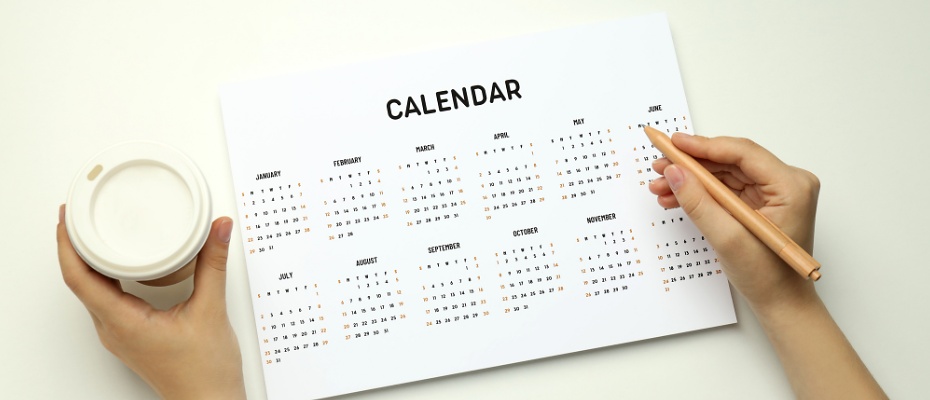
International trade fairs have always carried high stakes when it comes to results, and business travelers know that success is often tied not just to the event itself but to the preparation that precedes it. From securing prime accommodations to locking in early-bird exhibitor passes, the timeline leading up to a major event can mean the difference between a productive trip and a missed opportunity. Whether you're a seasoned trade fair attendee or gearing up for your first global expo, this guide breaks down exactly what to book and when for a smooth, efficient, and profitable business travel experience.
12 Months Before: Planning the Year Ahead
Start the preparations early! Most major trade fairs release their upcoming dates at least a year in advance. This is the time to identify which events align with your industry goals and growth strategies. Popular trade fairs like CES (Las Vegas), IFA (Berlin), and Mobile World Congress (Barcelona) attract tens of thousands of attendees, so competition for the best travel and hotel options is fierce.
Action Steps:
- Research trade fairs relevant to your sector and geographic targets.
- Coordinate with your team or stakeholders to determine who will attend.
- Set a travel budget and begin preliminary planning with your corporate travel partner.
- Subscribe to event newsletters and set reminders for key registration dates.
9 Months Before: Lock Down the Essentials
With the event landscape mapped out, the next step is to secure essentials. Booking early not only secures better pricing but also gives you a wider range of accommodation and flight options. Many trade fairs also offer early-bird rates for exhibitors and attendees during this period.
Action Steps:
- Book flights to secure preferred routes and business-class deals.
- Reserve hotel rooms near the event venue. Business travel booking platforms often have allocations at top business hotels.
- Apply for visas, if necessary, especially for events in countries with complex immigration processes.
- Start planning your trade fair agenda: keynotes, meetings, and networking events.
6 Months Before: Focus on Visibility & Networking
Half a year out, it's time to think tactically. For exhibitors, this is when booth designs and marketing campaigns should be in development. For attendees, it’s about preparing to make the most of your time at the event.
Action Steps:
- Finalize exhibitor registration and confirm booth logistics.
- Launch pre-event marketing: announce your attendance on LinkedIn and other platforms.
- Schedule meetings with clients, partners, and leads who will also attend.
- Plan business dinners or client entertainment around the trade fair dates.
3 Months Before: Optimize the Travel Experience
By now, the general outline should be complete. It’s time to fine-tune logistics and confirm all bookings. If you're traveling with a team, align on roles, responsibilities, and expectations to ensure seamless collaboration.
Action Steps:
- Confirm all flight and hotel bookings, and arrange airport transfers.
- Double-check passport validity and travel insurance.
- Download the official event app and begin building your on-site schedule.
- Arrange for roaming data packages or local SIM cards if traveling internationally.
1 Month Before: Prep Like a Pro
As the countdown begins, shift focus to the onsite execution. This means having all materials ready, from business cards and branded giveaways to digital presentations. If you’re hosting a booth, schedule delivery of items to the venue.
Action Steps:
- Finalize trade fair materials: brochures, product samples, signage, etc.
- Brief your team on objectives, talking points, and key contacts.
- Schedule time buffers between meetings to allow for venue navigation.
- Book last-minute restaurant reservations or team-building activities.
1 Week Before: Final Checks
Now’s the time for quality control. Review every detail, confirm every meeting, and test every device. Having a contingency plan is key as delays and schedule changes are common in high-pressure trade fair environments.
Action Steps:
- Reconfirm hotel and airport transfer reservations.
- Recheck meeting schedules and reach out to contacts for confirmations.
- Test presentation equipment and ensure cloud access to key documents.
- Pack smart: formal attire, power adapters, business cards, and comfortable shoes.
During the Trade Fair: Execute with Excellence
This is your moment. Focus on your objectives, stay adaptable, and make the most of every opportunity to network, learn, and engage.
Action Steps:
- Attend keynotes, workshops, and networking mixers.
- Stick to your schedule but stay open to spontaneous meetings.
- Take notes and document key conversations.
- Stay connected with your team through shared notes or group chats.
Post-Event: Follow Up and Reflect
The trade fair doesn’t end when you leave the venue. Timely follow-ups and internal debriefs turn contacts into clients and experiences into improvements for future trips.
Action Steps:
- Send follow-up emails within 48 hours of the event.
- Organize your notes, leads, and feedback.
- Conduct a debrief with your team to review wins and areas of improvement.
- Begin scheduling for next year. Some events offer priority rebooking for returning participants.
Take-away: Focus on Planning to Maximize Your Success
Trade fairs can be a powerful growth opportunity for your business, but it’s important to plan with the right strategy in mind. With a detailed timeline and a proactive mindset, business travelers can turn these events into high-impact prospects. From the moment a trade fair date drops on your calendar to the day you return with fresh leads and insights, travel planning is the key to trade fair success.
Need help planning your next trade fair trip? Consider working with a B2B travel specialist like Fair Point, who understands the pace, demands, and nuances of the global business event circuit. Because in business, timing might be the edge that sets you apart.
Wie können wir behilflich sein?
Sind Geschäftsreisekosten steuerlich absetzbar?
Was macht ein Reisebüro?
Ist es günstiger, ein Reisebüro zu beauftragen?